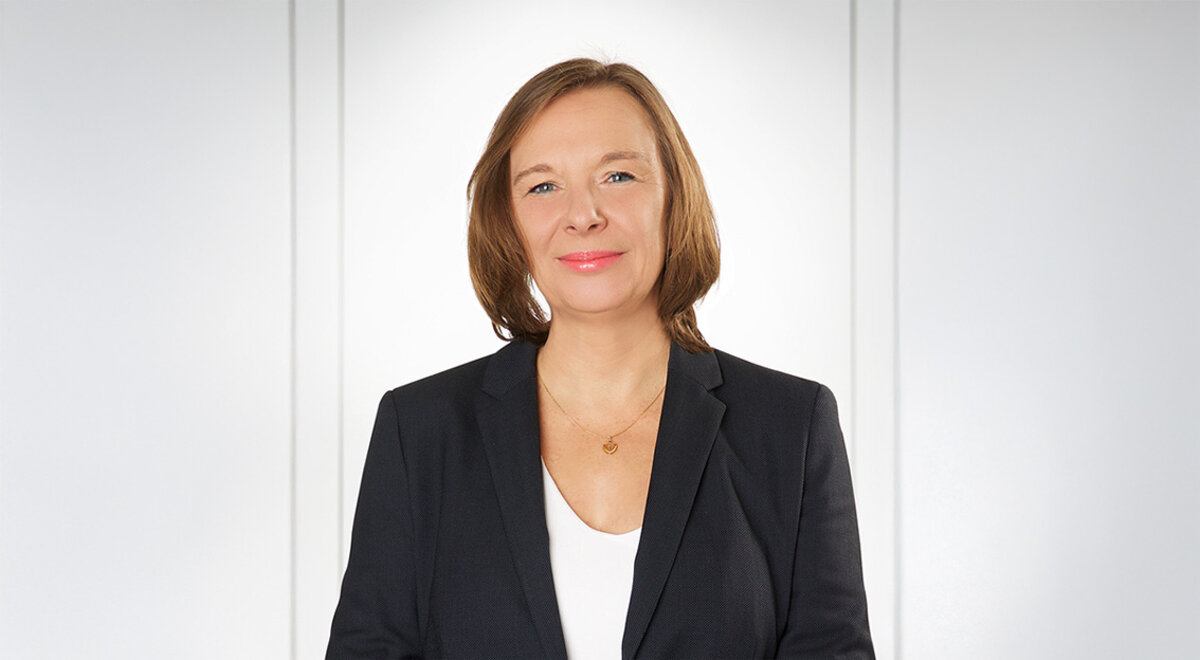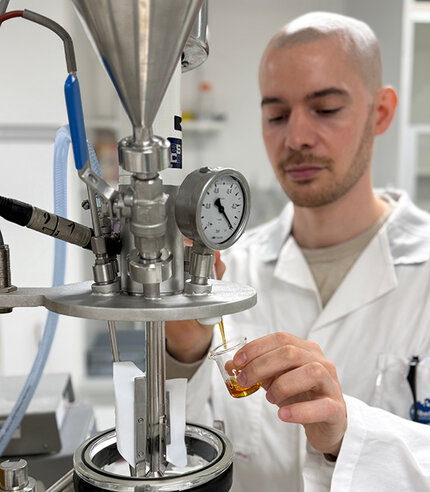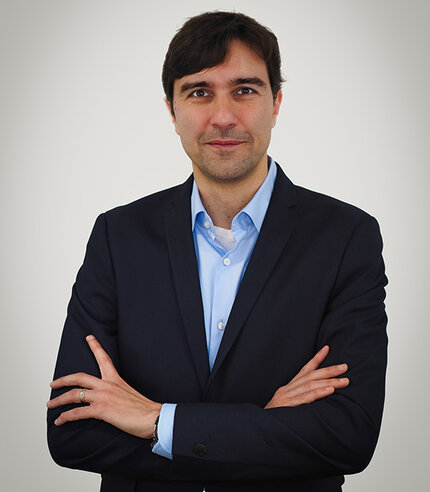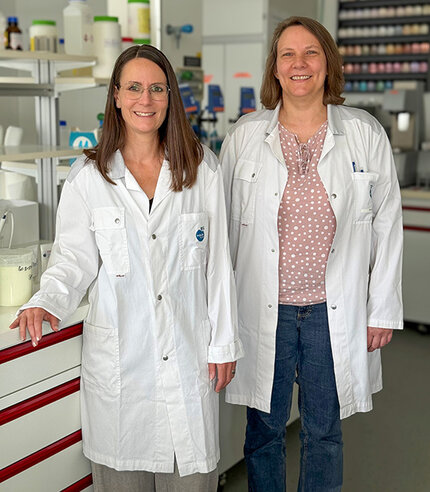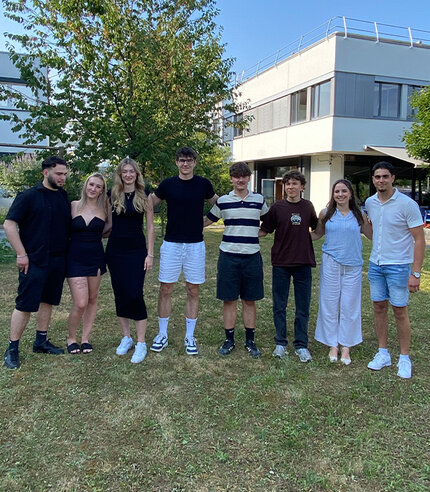Together with its partners, the Mibelle Group has developed a new technology that converts CO₂ into a fat that can replace palm oil. How did this collaboration come about?
For some time now, the Mibelle Group has been actively looking for alternatives to palm oil for the production of its raw materials. Palm oil is currently a widely used industrial ingredient due to the high yield of oil palms and the oil’s long shelf life. It is found in countless everyday products - from food and cosmetics to cleaning agents and biofuels. However, the environmental cost is significant. Vast areas of rainforest are being cleared to make way for oil palm plantations, threatening biodiversity and accelerating climate change. While the cosmetics industry has responded by sourcing palm oil from certified sustainable cultivation, this solution alone cannot meet the rising global demand in the long term. Recognising the need for innovative approaches, we partnered with LanzaTech and Fraunhofer IGB to explore a bold question: Can we eliminate palm oil without reverting to fossil-based alternatives? The solution lies in the state-of-the-art biotechnologies developed by LanzaTech and Fraunhofer IGB.
That sounds like a highly innovative approach. Can you explain the technologies in more detail?
Of course! The process consists of two consecutive fermentation steps. In the first step, CO₂, which would otherwise have been emitted into the atmosphere, is converted into alcohol. This is done using a special gas fermentation process developed by LanzaTech. It's a bit like brewing beer, except that we use CO₂ as the raw material instead of grain. In the second step, this alcohol is converted into fat by special oil yeasts. This process was developed by Fraunhofer IGB. It is important to note that we only use natural, non-genetically modified microorganisms. The result is a high-quality fat that is very similar to palm oil in its composition and properties – but is completely palm oil-free and sustainable.
How far has this technology already been developed? Can we expect products with this palm oil-free fat soon?
We are well on our way! The first laboratory trials were extremely promising. We are currently working on scaling up production to kilograms. This means transferring the processes from the laboratory to a larger production environment to produce the first quantities of the fat. This work is being carried out at the Fraunhofer Center for Chemical-Biotechnological Processes (CBP) in Leuna. At the same time, we are already testing, how the fat behaves in cosmetic formulations. Soon, we’ll be launching products that are as kind to your skin as they are to the planet
What challenges did you face in developing the technology?
Innovative technologies are particularly challenging to implement. The journey from successful laboratory trials to economically sustainable production requires not only scientific expertise, but also technical know-how and, above all, supporters who are willing to commit to climate and environmental protection. We are very fortunate to have fantastic customers who actively accompany us on our path to greater sustainability.
How much energy is required to produce the new fat and how sustainable is this process?
Fermentation processes are generally energy efficient. We already have several independently compiled life cycle assessments for LanzaTech's fermentation process, which clearly demonstrate theecological advantage over conventional manufacturing processes. Using LanzaTech's technology, we have already been able to produce sustainable alcohol as a grease remover, a CO2-based PET bottle, and a surfactant. We will also have a life cycle assessment carried out for the palm oil-free grease once the process has been scaled up. One clear advantage over conventional palm oil is that it requires no agricultural land and significantly reduces water usage.
Palm oil is a very versatile raw material. Can the new fat be used in all areas where palm oil is used?
Our palm oil-free fat has a similar composition to palm oil and therefore offers a wide range of possible uses. It is a real game changer that could cover many areas of application. In the future, we will also be able to use the fat to produce palm oil-free foods. It also offers great potential for biofuels, for example.
However, we are initially focusing on the cosmetics industry. At the end of the process development at Fraunhofer CBP, we have the first quantities of high-quality fat, which, due to its composition, not only offers outstanding protection for the skin, but also contributes to protecting our environment. In the future, with the support of our raw material suppliers, we hope to be able to switch more of our raw materials to this sustainable solution.
How do you see the future of the cosmetics industry in terms of sustainability?
The cosmetics industry has long been committed to sustainability in its products and is increasingly using sustainably grown raw materials. The big challenge, however, is that we need more raw materials for a growing world population and are already unable to meet demand without severely overexploiting nature. We need to start rethinking our established manufacturing processes and raw materials as soon as possible. This requires not only the industry, but also the cooperation of all stakeholders. Politicians and authorities also have a role to play; they must pave the way for new solutions and consumers should be able to clearly recognise the ecological footprint of a product. The Mibelle Group is playing an important pioneering role and has long been committed to significantly reducing the environmental impact of the industry through innovative approaches. I am convinced that we can make an important contribution to this with our palm oil substitute.
What motivates you personally to work on such projects?
As a mother, it is a matter close to my heart to contribute to preserving a world worth living in for the next generation. I find the use of modern biotechnology to manufacture everyday products very exciting, and the resulting solutions make me confident that we can achieve this.
What are your hopes for the future of this project?
I hope that we will soon be able to bring this technology to market and that it will receive the necessary support so that we can replace palm oil in many areas in the near future. Our goal is to be able to meet growing demand without further deforestation of the rainforest.

